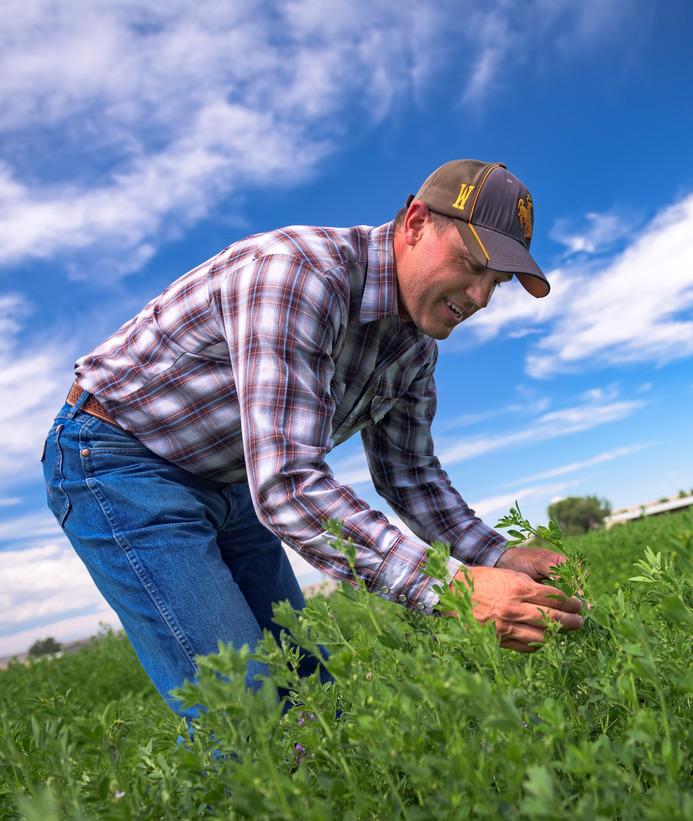About Agricultural Economics at UW
As part of a proud land-grant institution, the graduate program in agricultural and applied economics (AgEcon), offers a student-centered, research-intensive experience with one-on-one faculty interaction and paradigm-busting research opportunities. Here in the heavily rural state of Wyoming, you can not only find your place in this broad expansive discipline, you can also contribute to it through your study of natural resource economics, applied agricultural production, experimental/behavioral economics or water resource economics, among many other topics. Graduates of our program go on to careers in industry, government, Cooperative Extension, nonprofits and consultancies. Others pursue doctorates at universities all over the country.

Complete an applied research-based thesis working with a faculty adviser. Some recent thesis examples include the following:
- “An economic evaluation of continuous and rotational cattle grazing systems in Northern Colorado.”
- “Farm-level economic assessment of alternative groundwater management strategies over the Ogallala Aquifer in Southeastern Wyoming.”
- “Estimating demand for food quantity and quality in China.”

What Can You Do With an Agricultural and Applied Economics Master’s Degree?
Intensive research, small classes, mentoring and the opportunity to build a network in the AgEcon community help cultivate successful careers for agricultural and applied economics graduate alumni.
In addition to pursuing doctoral-level degrees, graduates from the agricultural and applied economics program work in both the private and public sectors, including:
- Foreign Agriculture Service
- National Agricultural Statistics Service
- Wyoming Legislative Services Office
- The Nature Conservancy
- Utah Tax Commission
- United States Agency for International Development
- Western EcoSystems Technology
- Western AgCredit
- Director of Supply Chain Optimization, JBS
- Associate Research Analyst, Wyoming Legislative Services Office
- Loess Hills Project Director, The Nature Conservancy
- Assistant Professor, CSU-Chico
- Washington State University
- University of Nebraska
- Colorado State University
- Virginia Tech
- Kansas State University
- University of Maryland
- University of Georgia
- University of Tennessee
The UW master’s program in agricultural and applied economics is full of faculty and students who are working together to help the world’s land stewards and policymakers make research-driven decisions.


